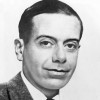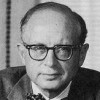Not every great man is a great human being.
[Nicht jeder große Mann is ein großer Mensch.]
Marie von Ebner-Eschenbach (1830-1916) Austrian writer
Aphorisms [Aphorismen], No. 267 (1880) [tr. Scrase/Mieder (1994)]
(Source)
(Source (German)). Alternate translation:Not every great man is a grand human being.
[tr. Wister (1883)]
Quotations about:
great
Note not all quotations have been tagged, so Search may find additional quotes on this topic.
We should keep silent about those in power; to speak well of them almost implies flattery; to speak ill of them while they are alive is dangerous, and when they are dead is cowardly.
[L’on doit se taire sur les puissants: il y a presque toujours de la flatterie à en dire du bien; il y a du péril à en dire du mal pendant qu’ils vivent, et de la lâcheté quand ils sont morts.]
Jean de La Bruyère (1645-1696) French essayist, moralist
The Characters [Les Caractères], ch. 9 “Of the Great [Des Grands],” § 56 (9.56) (1688) [tr. Stewart (1970)]
(Source)
(Source (French)). Alternate translations:The less we talk of the powerful, the better; what we say good of them, is often flattery: 'Tis dangerous to speak ill of 'em while they live, and villainous when they are dead.
[Bullord ed. (1696)]The less we talk of the Great and Powerful, the better; what good we say of them is often Flattery 'Tis dangerous to speak ill of them while they are alive, and villainous when dead.
[Curll ed. (1713)]The less we talk of the Great and Powerful, the better; what good we say of them is often Flattery: It is dangerous to speak of of them while living, it is base to insult over them when dead.
[Browne ed. (1752)]The less we talk of the great and powerful the better; if we say any good of them, it is often almost flattery; it is dangerous to speak ill of them whilst they are alive, and cowardly when they are dead.
[tr. Van Laun (1885)]
The road must be trod, but it will be very hard. And neither strength nor wisdom will carry us far upon it. This quest may be attempted by the weak with as much hope as the strong. Yet such is oft the course of deeds that move the wheels of the world: small hands do them because they must, while the eyes of the great are elsewhere.
J.R.R. Tolkien (1892-1973) English writer, fabulist, philologist, academic [John Ronald Reuel Tolkien]
The Lord of the Rings, Vol. 1: The Fellowship of the Ring, Book 2, ch. 2 “The Council of Elrond” [Elrond] (1954)
(Source)
Possibly the origin of the spurious "Even the smallest person can change the course of the future." This is said by Galadriel, but only in the film version, The Fellowship of the Ring (2001), screenplay by Fran Wash and Philippa Boyens.
More discussion: Not a Tolkien quote: "Even the smallest person can change the course of the future." - thetolkienist.com.
Little friends may prove great friends.
Aesop (620?-560? BC) Legendary Greek storyteller
Fables [Aesopica], “The Lion and the Mouse” (6th C BC) [tr. Jacobs (1894)]
(Source)
You’re the top!
You’re the Colosseum.
You’re the top!
You’re the Louvre Museum.
You’re a melody from a symphony by Strauss,
You’re a Bendel bonnet, a Shakespeare sonnet,
You’re Mickey Mouse.You’re the Nile,
You’re the Tow’r of Pisa,
You’re the smile
On the Mona Lisa.
I’m a worthless check, a total wreck, a flop,
But if, baby, I’m the bottom
You’re the top!
Celebrity-worship and hero-worship should not be confused. Yet we confuse them every day, and by doing so we come dangerously close to depriving ourselves of all real models. We lose sight of the men and women who do not simply seem great because they are famous but are famous because they are great. We come closer and closer to degrading all fame into notoriety.






